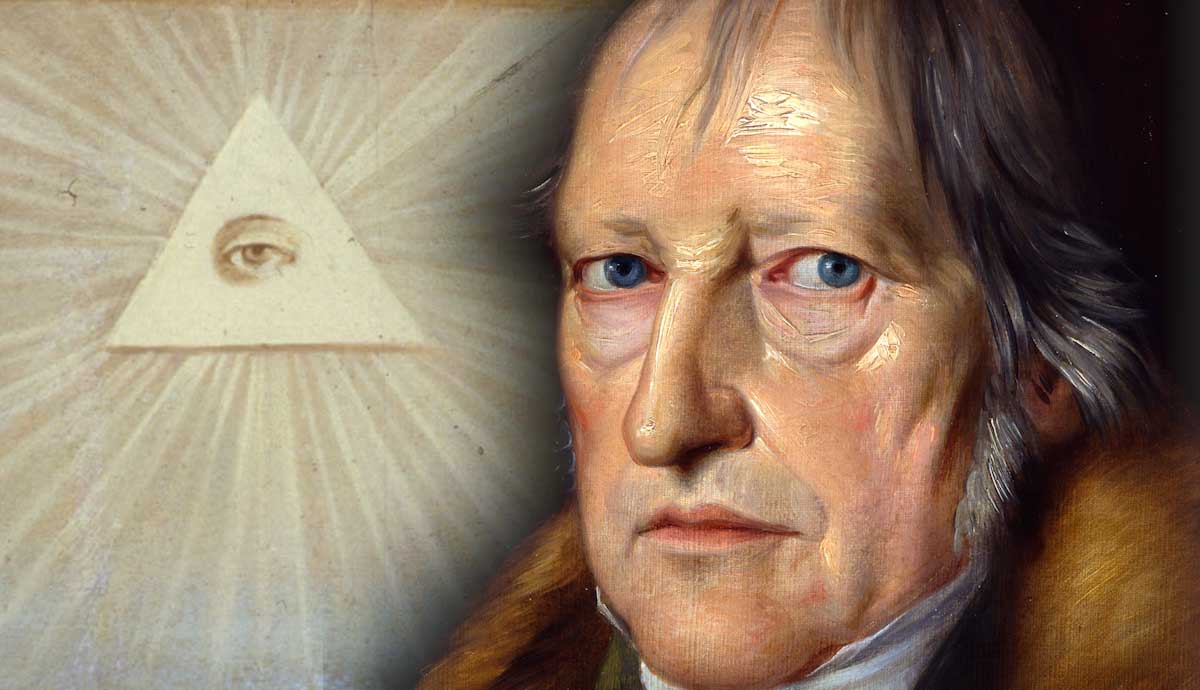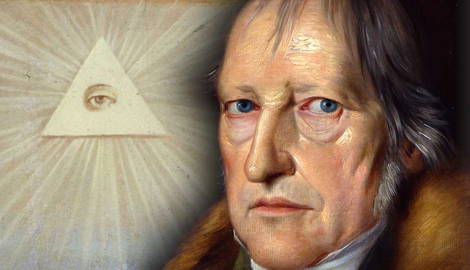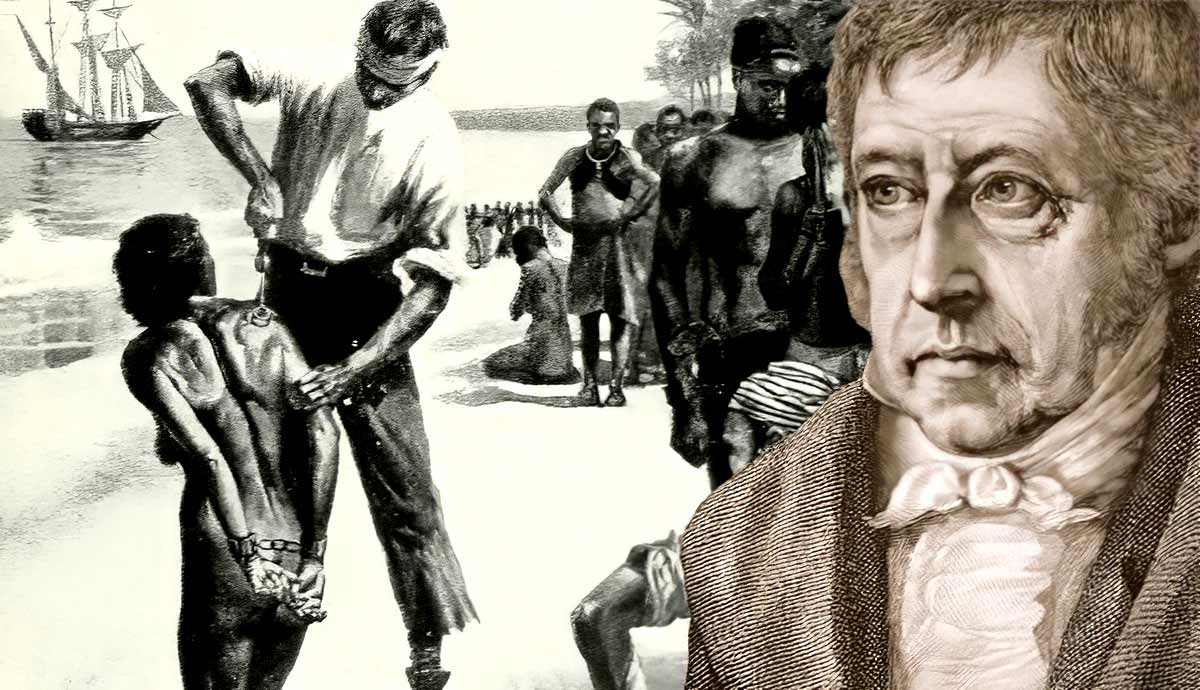
With his all-encompassing philosophical system, Georg Wilhelm Friedrich Hegel was the last of his kind, following the great system builders like Plato, Aristotle, Spinoza, and Kant. The subjects of his works range from metaphysics and epistemology to political philosophy, philosophy of history, and aesthetics. Each of these works constitutes an important component of Hegel’s greater philosophical project.
This article is an examination of Hegel’s political philosophy, which aims to actualize freedom through dialectical stages involving recognition and social participation. It’s necessary to begin such an analysis with a discussion of how his political philosophy relates to his whole system of thought, because as Hegel states, “the truth is the whole.” (Hegel, 1977)
Georg Wilhelm Friedrich Hegel’s Philosophical System

Several different notions—spirit (geist), freedom, reason, recognition, logic—can be taken to be the central element of Hegel’s political philosophy. However, examinations based on some of these concepts would require prior knowledge of Hegelian philosophy. Hegel uses a unique terminology that attributes special meanings to some concepts. Moreover, Hegel was a holist who believed that the components of a system didn’t mean anything by themselves without the whole structure. In his introduction to Elements of the Philosophy of Right, Hegel ironically argues that introductions to such extensive theories are pointless as they can’t possibly present the whole meaning.
For this reason, understanding Hegel’s political philosophy as an attempt to reconcile people with the modern world makes things easier. This is not only helpful in overcoming the terminology challenge but also makes Hegel’s philosophy relatable for the readers on a personal level.
Many people feel alienated from the state, community, or even their own family in the modern world. Hegel’s main goal was to reconcile the alienated people with these modern social institutions because he believed that they provide the structures for actualizing freedom.

In his Encyclopedia of the Philosophical Sciences, Hegel divides his philosophical system into three main parts: Science of Logic, Philosophy of Nature, and Philosophy of Spirit.
As an investigation of the fundamental conceptions of our thinking, Science of Logic presents Hegel’s dialectical method in a purely conceptual form. Philosophy of Nature deals with the contingent aspects of natural sciences. The third chapter is the study of Spirit (geist), a central concept in Hegelian philosophy, referred to in various topics such as the development of human consciousness (Phenomenology of Spirit) or historical progress (Lectures on the Philosophy of History). In short, Spirit points to human consciousness and its products, including both the individual human mind and collective human products such as culture, sciences, politics, etc. Philosophy of Spirit contains Hegel’s political and social philosophy, although only briefly.
Elements of the Philosophy of Right (shortly Philosophy of Right) is considered Hegel’s main work on political philosophy. This text includes Hegel’s extensive discussion on topics only introduced in the third part of Encyclopedia.
In his preface to Philosophy of Right, Hegel states that the aim of philosophy should be to understand its contemporary world rather than theorize about what ought to be. That’s because Hegel firmly believed that philosophy, just like human individuals, is trapped in its own time. Philosophy can grasp historical conditions only in hindsight: “The owl of Minerva begins its flight only with the onset of dusk.” (Hegel, 1991) Hence Hegel’s main goal is to show that people can feel at home in the modern world, rather than projecting a future society like Karl Marx. For Hegel, the basic institutions of modern society are inherently rational, creating the conditions for the actualization of freedom.
Hegel’s Dialectics and the Structure of Philosophy of Right

For Hegel, human freedom can only be realized through participating in the complex organization of modern society. Philosophy of Right consists of Hegel’s discussion of three domains of right (recht) as the basis for actualizing freedom, each one encompassing the preceding one: Abstract Right, Morality, and Ethical Life (Sittlichkeit). It should be noted that Hegel doesn’t use these notions in their generic sense, as he attributes special meanings to them in line with his own philosophy. Ethical Life involves the progression of the idea of freedom through the individual’s participation in the three modern social institutions—family, civil society, and state.
Understanding dialectics, Hegel’s philosophical method, is key to making sense of these triadic patterns found in the Philosophy of Right.
As a structure of reasoning, Hegel’s dialectics involves the development of a concept through its inner contradictions, in which the opposing aspects eventually form a harmonious unity by mutual recognition.
The popular ‘thesis-antithesis-synthesis’ scheme is falsely attributed to Hegel, as he has never actually used it. Hegel instead mostly used the triadic scheme of ‘abstract-negative-concrete’ because it doesn’t contain arbitrariness when compared to ‘thesis-antithesis-synthesis.’
In the abstract moment, the concept appears purely as an abstract universal that lacks any particular content. The negative moment is the negation of abstract universality; the concept gains a particular content while leaving its universal character. The final moment brings the universal and particular moments together and “grasps the unity of the determinations in their opposition…” (Hegel, 2010) The particular and the universal stand in harmony in the concrete; the concept is now actualized.
Here, Hegel’s terminology may be making an already abstract topic even more obscure. The focus of this article will now shift onto his discussion of free will, not only because it’s a good example of Hegel’s dialectics, but also because freedom is at the heart of his political philosophy.
The Basis of Free Will

A key argument Hegel puts forward in his introduction to Philosophy of Right is that the Ethical Life of a society is to be understood as a structure of will. This means that political, economic, domestic, religious, and other kinds of social organizations are structures of will. Laws, for example, should be understood in terms of intentions, desires, values, and principles of the subjects (court officials, legislators, etc.) who consciously occupy these roles. That’s precisely why Hegel begins his political philosophy with a discussion of free will.
Following the dialectic scheme, Hegel describes the first element of will as “the element of pure indeterminacy…” (Hegel, 1991) This abstract moment of thinking about thinking leads to self-consciousness. Every content other than ‘I’s self-reflection, such as particular desires and needs, is absent. This means that this will is only free ‘for-itself’: It knows that it is free, but lacks a particular content.
Hegel’s main example of this ‘arbitrary freedom’ which sees every content as a restriction is the Terror period in the French Revolution, describing it as a fanaticism of pure destruction. In the second element, the will is rather determined by a content. When I desire an apple, ‘I’ is the desiring subject and the apple is the determinate object. This will, however, is only free ‘in-itself’. Therefore, the desiring will is also insufficient, as it identifies itself only through a particular desire for an object.

Actual free will for Hegel, as the final dialectical moment asserts, is the unity of these two one-sided moments. The particular content is now contained within the universal idea of free will. As a result, actual free will is free both ‘for-itself’ and ‘in-itself’. Free will knows its particular needs and desires, but also knows that it’s more than these particularities: It recognizes itself as free. “Freedom is to will something determinate, yet to be with oneself in this determinacy and to return once more to the universal.” (Hegel, 1991)
Perhaps a way of making sense of Hegel’s point is by describing the two moments of will with reference to past philosophers who theorized about freedom. Thomas Hobbes, for example, argued that we are free when nothing prevents us from doing what we do. Immanuel Kant, on the other hand, argued that freedom lies in our capacity to resist the promptings of our desires. Hegel seems to be arguing that actual freedom should be extracted from the unity of these opposing positions. As seen in his dialectical method, where some people see a contradiction, Hegel sees a constructive opportunity.
Hegel’s description of actual freedom as the unity of these two opposing conceptions sets the task of Philosophy of Right. Underlining the importance of recognition and self-consciousness in Hegelian philosophy, this characterization of freedom shows how it can be actualized in the structure of modern society. Hegel’s widely influential master-slave dialectic as a mutual recognition theory also explains how each self-conscious subject needs to recognize other self-conscious subjects. The sphere of Ethical Life provides this possibility for mutual recognition, but the first dialectical stage to be examined is Abstract Right.
Abstract Right and Morality

For Hegel, free will is actualized in the world through three spheres of right: Abstract Right, Morality, and Ethical Life. This system of rights enables agents to act as individuals, moral agents, and citizens. The first dialectical stage, Abstract Right, includes the property rights of individuals abstracted from their beliefs, nations, families, etc. At this stage, individuals are given purely abstract and universal identities as atomistic persons and their particularities such as personal beliefs and desires are excluded.
In Abstract Right, there is only a commandment for prohibiting interference: “be a person and respect others as persons.” (Hegel, 1991) A person demands the recognition of other persons for his action so that they don’t interfere. This right of non-interference can be understood as negative freedom. Hegel deems Abstract Right insufficient as the abstract, atomistic person only seeks self-interest by definition and lacks moral principles.
In the sphere of Morality, individuals are treated as moral subjects. In contrast to Abstract Right, individuals’ particular determinations such as purposes and intentions are taken into account. Hegel criticizes Immanuel Kant’s duty ethics, arguing that Kant’s universal law formulation offers only an empty formula of duty for the sake of duty.
Stating that Kant’s formula would be insufficient when applied in society, Hegel provides his concept of good which includes the subjects’ well-being and satisfaction of interests that respect rights. However, Morality lacks objective determinations for an individual’s moral duties. Without actual laws and institutions, duties can’t be universalized. Without objective content, moral duty becomes a merely subjective one that is usually based on conscience, which can lead to evil actions. Therefore, Hegel also deems Morality insufficient for actualizing freedom.
Ethical Life is the last and self-sufficient stage, providing the needed criteria with its objectively determined laws and institutions. “The sphere of right and that of morality cannot exist independently; they must have the ethical as their support and foundation.” (Hegel, 1991)
Ethical Life: Family, Civil Society, and State

Hegel then discusses concepts considered in Abstract Right and Morality. The subjective sphere of Ethical Life provides the rights for pursuing personal goals, while the objective sphere secures individuals and their rights via laws.
Family as the first element of Ethical Life is a union formed not with reason but with feelings. Marriage involves gaining recognition from another consciousness, which is a necessary step to actualizing freedom for Hegel. The motivation behind marriage is not self-interest (unlike contractual relationships), but love, which aims to create a permanent union. In family, particularities like ‘I’ and ’You’ are superseded in becoming ‘We’. In that sense, family is a unity of particularity and universality to some degree.
Hegel defines the next stage, civil society, as primarily the realm of work. The justice system and law are also situated here to regulate economic life. In contrast to family, the main principle of civil society is self-interest, as the person seeks to satisfy individual needs. But because the world of work requires individuals to cooperate with others, universality emerges as the second principle. For Hegel, civil society contains Abstract Right in its most concrete form as the individuals determine their particular needs and are covered by the objective sphere of justice administration.
Hegel’s final stage of Ethical Life, the state, can be described as the unity of universality and particularity on a rational ground. Firstly, in contrast to social contract theories, the state is not a mere means for satisfying individual needs for Hegel. State, Hegel argues, is constituted through reason, and because of that, as a unity of universality and particularity, it also respects individual flourishing. The laws and institutions are rationalized by the citizens, while the state, as a rational entity, secures individual rights. The love for family members and the desire for economic goals are transformed into a communal bond, embodied by the state.
Hegel’s Philosophy of Right: The Full Story

What can be said about Hegel’s detailed structure of modern society? Perhaps, the clearest way of explaining Hegel’s point is to describe the dialectical journey of an individual through these stages —Abstract Right, Morality, and Ethical Life (family, civil society, state).
Moving from Abstract Right to State, each normative system is characterized by distinctive understandings of the individual. As a person, I claim rights, respect the rights of others, and understand crime as a violation of these rights. As a moral subject, I understand my responsibility for my actions and seek moral principles for my pursuit of good, but also understand their subjective insufficiency for establishing rules. I need the context of Ethical Life, which gives me identity and duties as a family member; son of my parents, husband of my wife, and father of my children. I engage in the economy through my occupation and understand how the legal system determines my duties in all these roles. In the last stage, I see myself and others as citizens of my country and recognize its place in human history.
These systems are integrated, allowing a single human being to occupy all these roles at once. It’s important to remember that the ordering of these spheres is dialectical, not chronological. In this social orchestra, persons reconcile their individual aspirations and their social roles. Only then, Hegel believes, can people be truly free. “Ethical Life is the Idea of freedom as the living good which has its knowledge and volition in self-consciousness.” (Hegel, 1991)
Georg Wilhelm Friedrich Hegel’s Influence

“What is rational is actual, and what is actual is rational.”
(Hegel, 1991)
The controversy surrounding Hegel’s philosophy started only a decade after his death, as his disciples were divided into ‘Left Hegelians’ and ‘Young Hegelians’. The above quote led many people to think that Hegel simply defended the existing order. It should be noted that what Hegel means by ‘actual’ is not simply what exists. An actualized concept for Hegel has developed through dialectics and gained its rationality in the world. However, this didn’t stop Giovanni Gentile, the ‘philosopher of fascism’, to base his thought on Hegel’s philosophy. Concerning this tendency, Hannah Arendt and Karl Popper have famously criticized Hegel’s political philosophy for laying down the foundations of totalitarianism.
Hegel’s emphasis on free will and individual rights also attracted some liberal thinkers such as Francis Fukuyama, whose famous ‘End of History’ thesis was strongly influenced by Hegel. On the contrary, the superiority of Ethical Life over Morality and Abstract Right in his philosophy led contemporary philosophers like Charles Taylor to come up with a communitarian interpretation of Hegel. Perhaps Hegel’s strongest influence was on Karl Marx, leading Marx to use Hegelian dialectics in a materialistic way. Today, Slavoj Zizek, who is often called a ‘celebrity philosopher’, prefers to describe himself as a Hegelian rather than a Marxist.
It is fair to say that, despite his challenging terminology and abstract reasoning methods, Georg Wilhelm Friedrich Hegel had an immense impact on human history, whether directly or indirectly through his wide intellectual influences.
Bibliography
Hegel, G. W. (1991). Elements of the Philosophy of Right. (A. W. Wood, Ed., & H. B. Nisbet, Trans.) Cambridge: Cambridge University Press.
Hegel, G. W. (2010). Encyclopedia of the Philosophical Sciences in Basic Outline, Part I: Science of Logic. (K. Brinkman, D. O. Dahlstrom, Eds., K. Brinkman, & D. O. Dahlstrom, Trans.) Cambridge: Cambridge University Press.
Hegel, G. W. (1977). Phenomenology of Spirit. (A. V. Miller, Trans.) Oxford: Oxford University Press.










